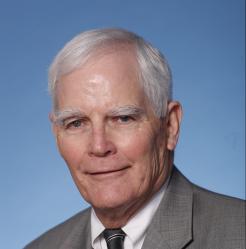This article originally appeared in The Hill on July 26, 2017.
Rigorous evaluations find that too many programs addressed to the nation’s most serious social problems — like low student achievement to child abuse and neglect — just don’t work.
Social programs are hardly alone: high-quality evaluations of medical and business innovations also find that 80 to 90 percent of new initiatives fail.
But policymakers, program managers, and social scientists are not giving up. They have taken a vital first step by recognizing the need for better outcomes. And over the past decade they have developed an evidence-based policy approach that holds promise to do better.
The advance guard is a series of programs that base funding on producing results. At the point of the advance guard is the Teen Pregnancy Prevention Program (TPP). With a budget of about $100 million per year, this tiny investment is funding projects that use model programs that the Department of Health and Human Services, with assistance from the respected firm Mathematica Policy Research, has determined to have strong evidence of success.
The TPP network is attempting to show how these model teen pregnancy prevention programs can be replicated in new settings. That’s important, as too many successful initiatives prove to be “boutiques” that succeed in only one time and place. If we are to reduce national social problems, we need programs that can be implemented in hundreds of locations and still produce powerful effects.
Last summer, the first set of 41 TPP projects published their results after several years of implementing their model prevention programs. As many as 40 percent of the projects produced at least one significant impact in reducing either a behavior associated with sexual activity or reducing pregnancy itself. Comparing this figure with the expected success rate of 10 percent to 20 percent for most replications of social programs shows that the field is making progress. No one should conclude that TPP has produced a total victory, but in an enterprise where failure is common, TPP shows two important things.
First, some model programs can have significant impacts in new locations. Second, and less obvious, the federal agency responsible for administering the program — the Office of Adolescent Health at HHS — demonstrated competence in helping a network of programs monitor and improve their performance. OAH also helped the programs train staff, work with parents, and plan and execute their all-important evaluations.
One key to the future success of evidence-based policy is partnerships between government and nonprofit agencies to build programs that are well implemented, rigorously evaluated, and continually improved.
Everyone, including advocates for these and other social programs, should understand that there will be no easy victories. Within TPP, there were two projects with a clear negative impact on an outcome of interest. These results signal that the model programs being used by those two projects probably shouldn’t be replicated, while successful approaches can be.
Pursuing this agenda through leadership and federal funding, TPP funded a new set of projects to build on the knowledge gained from the results published last summer. The new projects are now entering the third year of their five-year funding cycle and will soon begin producing results that can be evaluated. This iterative process should become a model for refining social programs to achieve growing impacts, the most important and least understood step in evidence-based policymaking.
Now the TPP Program, seven years in the making, has been destroyed by a bomb from the Trump administration. The 81 new projects have just received notice from HHS, previously the source of encouragement and support for projects in their network, that they are being terminated next summer. No clear reason was given.
Thus, the Trump Administration has exploded one of our most promising evidence-based programs. In striking contrast to the Trump administration, many Republicans now recognize that evidence-based policies are the wave of the future. Consider the report language of the Financial Services and General Government Appropriations Bill passed in July by the Republican controlled House Appropriations Committee:
The Committee encourages [the Office of Management and Budget] . . . to develop strategies to accelerate learning about what works through rigorous evaluations and . . . ensure the best evidence is brought to bear in decision-making.”
We doubt that the Appropriations Committee anticipated that the most destructive step in many years to undermine their advice about how to build evidence to improve social programs would come from their friends in the Trump administration. Congress, whose members still hold the purse strings, should not allow the Trump administration’s grievous and ill-considered decision to stand.
The authors did not receive financial support from any firm or person for this article or from any firm or person with a financial or political interest in this article. Ron Haskins is on the Board of the National Campaign to Prevent Teen and Unplanned Pregnancy. Otherwise, they are currently not an officer, director, or board member of any organization with an interest in this article.
The Brookings Institution is committed to quality, independence, and impact.
We are supported by a diverse array of funders. In line with our values and policies, each Brookings publication represents the sole views of its author(s).









Commentary
Op-edTrump team doesn’t understand evidence-based policies regarding social problems
August 10, 2017